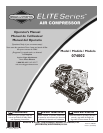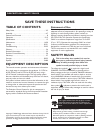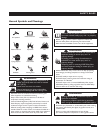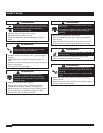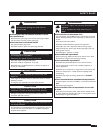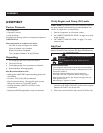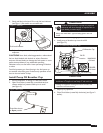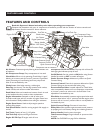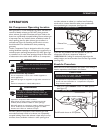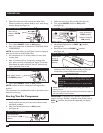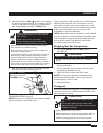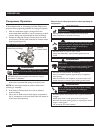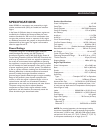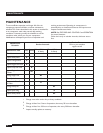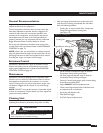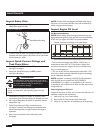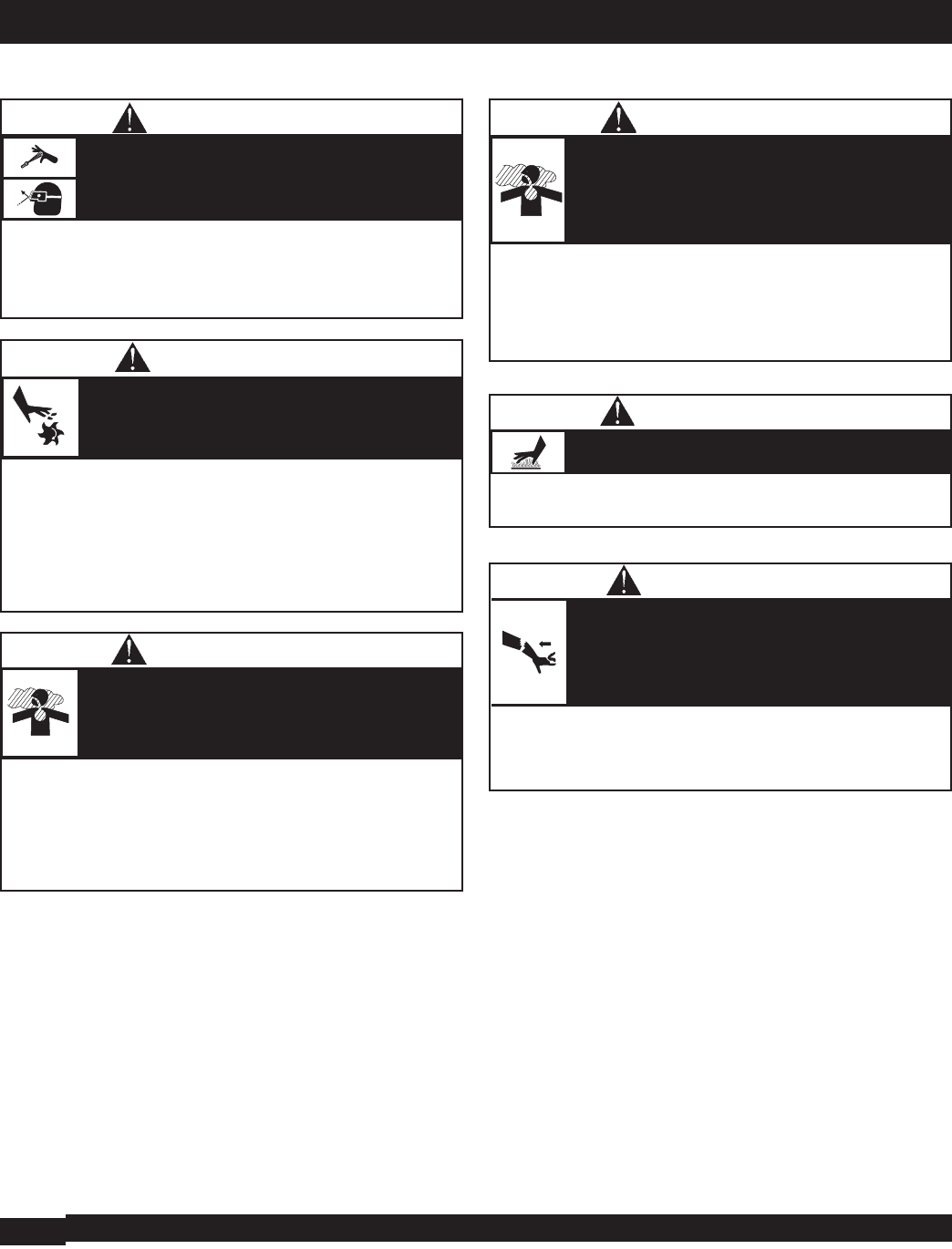
SAFETY RULES
4
• DO NOT touch hot parts and AVOID hot exhaust gases.
• Allow compressor to cool before servicing.
Hot parts and exhaust gases can exceed 150
°
F and
can cause burns.
WARNING
• DO NOT direct air stream at self or others.
• DO NOT attempt to repair air hose(s).
• Always wear ANSI Z87.1 approved safety glasses with side
shields.
Compressed air stream from hose or tank drain
can cause soft tissue damage to exposed skin and
can propel objects leading to severe injury
and / or property damage.
WARNING
• DO NOT use compressed air for breathing.
• Always use NIOSH respirator approved for your application
when spraying.
• Read all instructions with respirator so you are certain it will
provide necessary protection against inhaling harmful vapors.
Compressed air is not breathable and can cause
bodily injury.
Some paints or solvents may be harmful if inhaled
or ingested, causing severe nausea, fainting or
poisoning.
WARNING
• DO NOT operate with protective covers / guards removed or
damaged.
• NEVER place hands or body parts inside of running unit or
hoses.
• DO NOT wear loose clothing, jewelry or anything that may be
caught in rotating parts.
• Tie up long hair and remove jewelry.
Starter and other rotating parts can entangle
hands, hair, clothing, or accessories.
WARNING
• NEVER pull starter cord without first opening start valve to
release pressure.
• When starting engine, pull cord slowly until resistance is felt and
then pull rapidly to avoid kickback.
Rapid retraction of starter cord (kickback) will
pull hand and arm toward engine faster than you
can let go.
Broken bones, fractures, bruises or sprains could
result.
WARNING
• Operate air compressor ONLY outdoors.
• Keep exhaust gas from entering a confined area through
windows, doors, ventilation intakes or other openings.
• DO NOT operate air compressor inside any building, confined
area or enclosure, such as basements, garages or a similar
location, even if doors or windows are open.
Running air compressor gives off carbon
monoxide, an odorless, colorless, poison gas.
Breathing carbon monoxide can cause nausea,
fainting or death.
WARNING



